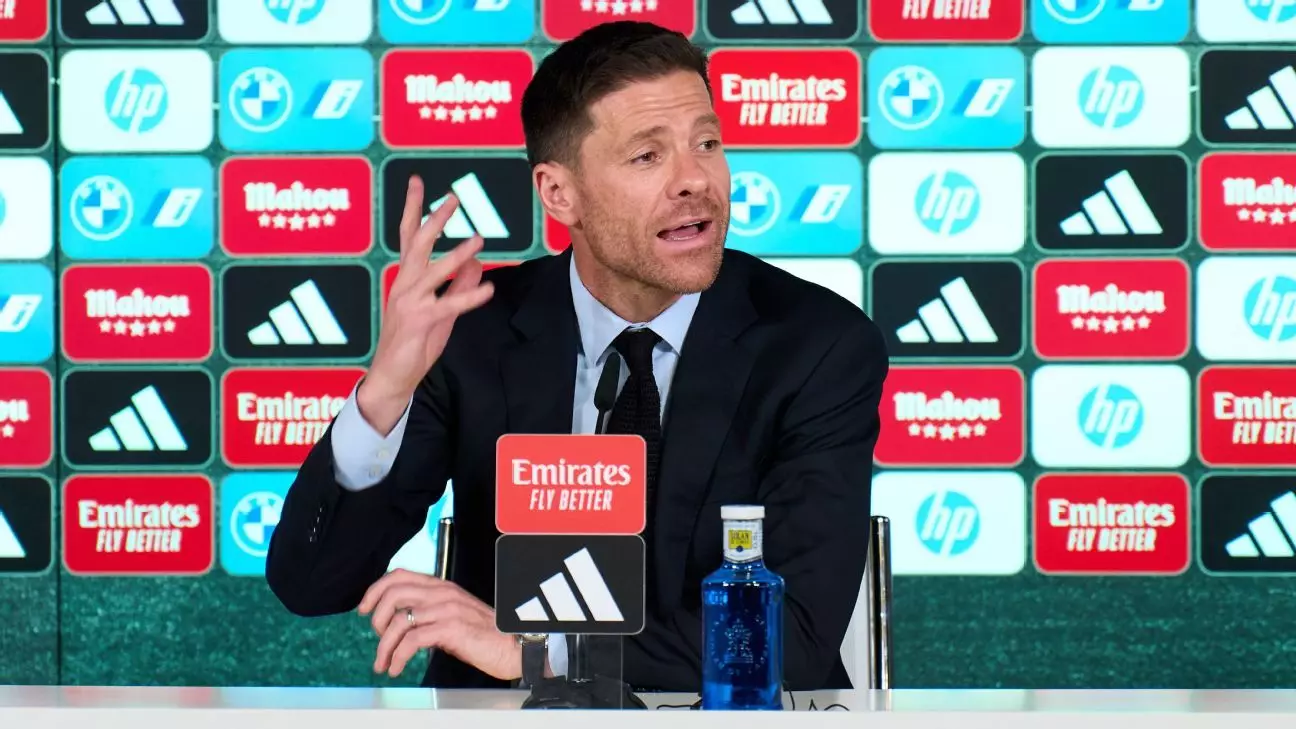The landscape of Real Madrid is set to undergo significant transformation as Xabi Alonso steps into the managerial role, replacing Carlo Ancelotti. This pivotal moment isn’t just about a change in leadership; it symbolizes a refreshed vision and renewed aspirations for a club that is synonymous with European football excellence. Recently, club president Florentino Pérez emphasized the imminent challenge of the Club World Cup, a tournament that will serve as the first test of Alonso’s strategic capability and adaptability. The weight of expectation is immense, particularly as Real Madrid seeks to reclaim its status after a trophyless season.
Facing Challenges Head-On
Alonso’s debut in the managerial landscape brings with it both promise and pressures, especially given the context of the club’s current situation. His first training session unfolded with a mere five first-team players due to international commitments and injuries. The addition of ten reserve players speaks volumes about the demands Alonso will face in optimizing his squad within a tight timeframe. With four training sessions left before their departure to the United States, time is of the essence. Yet, this challenge provides Alonso with a unique opportunity to analyze and integrate younger talent into his tactical framework—an endeavor that can yield invaluable insights and possibly reinvigorate the squad’s chemistry.
The Club’s Aspirations
Pérez’s optimism is palpable as he outlines the club’s objective: a strong showing in the Club World Cup. His comments reflect a relentless pursuit of success that has become a hallmark of Real Madrid’s culture. With the memories of previous triumphs firmly entrenched in the club’s identity, Alonso will undoubtedly feel added pressure as he gears up for the first match against Al Hilal in Miami—a club that has made waves in recent years. The stakes are higher than ever as they face off against formidable opponents like Pachuca and RB Salzburg, both seasoned clubs eager to prove their mettle on this international stage.
Strategic Moves in the Transfer Market
The recent acquisitions of players like centre-back Dean Huijsen and right-back Trent Alexander-Arnold signal a proactive approach from the club’s management to bolster the team ahead of the tournament. Both players bring diverse skill sets that Alonso can harness to create a robust defensive strategy, an area that may require reinforcement after the previous season’s shortcomings. Furthermore, ongoing negotiations for Benfica’s Álvaro Carreras hint at an intent to secure balanced depth across the defensive line. These strategic decisions reflect an understanding of the requirements for success on the world stage—a commitment to fostering a competitive edge that Alonso will be expected to maximize.
Charting the Path Forward
Alonso’s emergence as a manager is not merely about his tactical prowess; it represents a turning point for Real Madrid, one that could harmonize tradition with innovation. This unique interplay between established club ethos and fresh managerial insight will undoubtedly make the upcoming Club World Cup a significant chapter in the club’s ambitious journey. As Alonso develops his coaching philosophy, the focus will be on instilling resilience, forging team unity, and rediscovering the unyielding spirit that defines the Madridista identity. The road ahead is fraught with challenges, but the potential for growth and success under Alonso could very well yield a thrilling new era for Real Madrid.

